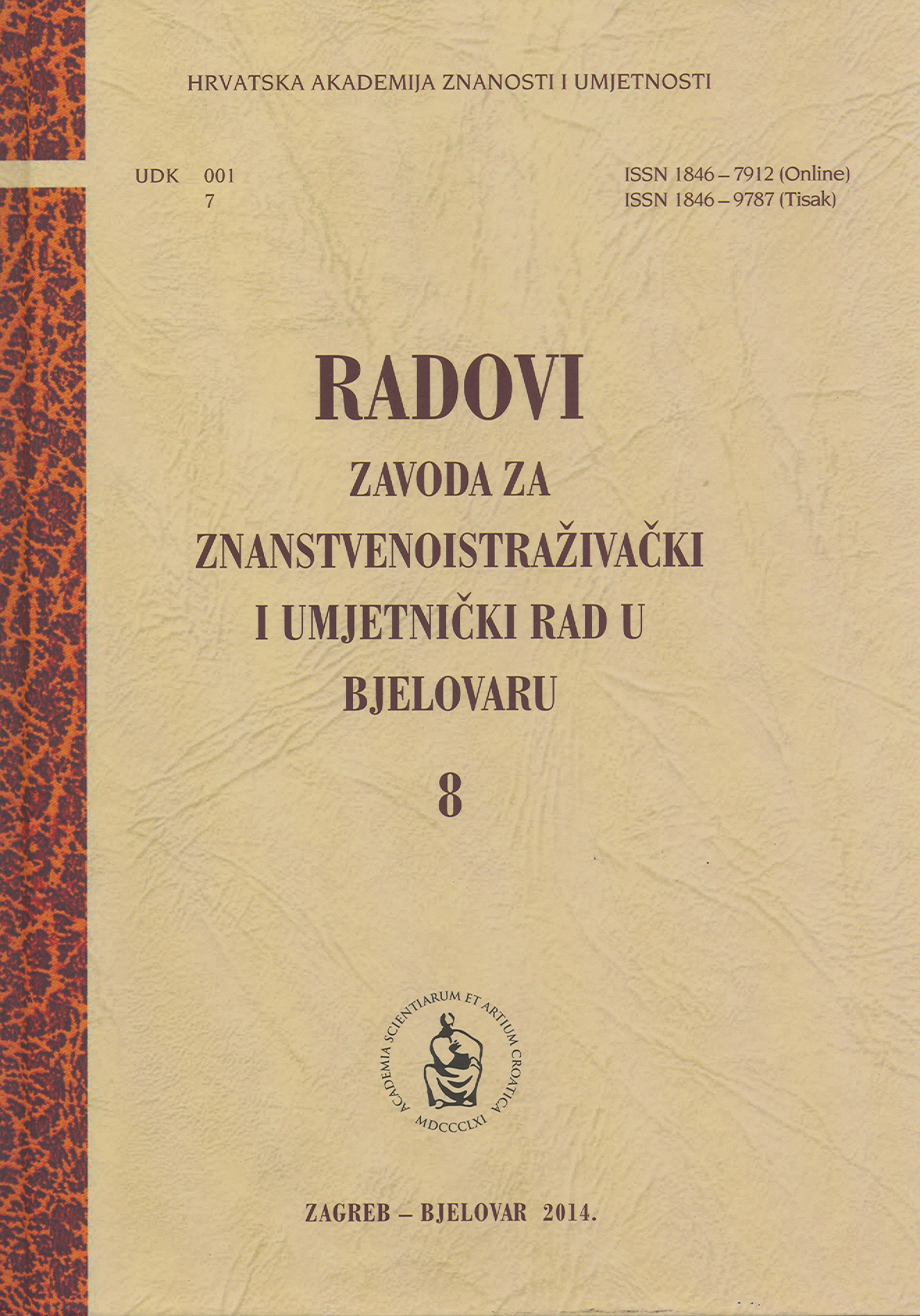Civilno stanovništvo daruvarskog i grubišnopoljskog područja u zbivanjima 1990. - 1991. godine
Civil Population in the Areas of Daruvar and Grubišno Polje in the Wartime Events 1990–1991
Author(s): Vjenceslav HeroutSubject(s): Local History / Microhistory, Military history, Political history, Recent History (1900 till today), Transformation Period (1990 - 2010), Wars in Jugoslavia
Published by: Hrvatska akademija znanosti i umjetnosti - Zavod za znanstvenoistraživački i umjetnički rad u Bjelovaru
Keywords: Daruvar; Grubišno Polje; civil population; political parties; rebel Serbs; terrorism; victims; humanitarian actions;
Summary/Abstract: The civil population in the Daruvar and Grubišno Polje areas shared in 1990 and 1991 all the wartime sufferings that other parts of Croatia were struck by as well. In this area, civilian victims outnumbered the ones who actively participated in wartime actions within military and police units. The events that marked the year of 1990 and the first half of 1991 should be regarded as political; therefore, they belong to the civil sector. The military component should be set in the background, especially after the arms belonging to the territorial defence were, mid 1990, stored in the Polom arsenal near Daruvar. This was, however, only a deceit; soon the civil population of Serbian nationality began to arm itself, and thereby commenced the realisation of the well-prepared military scenario regarding the fate of these areas. Political battles that started by forming new non-communist parties, which entered into a conflict in connection – to the most part – with the reorganisation of the state, marked this period. The Serbian Democratic Party and the majority of Serbian population in the areas of Daruvar and Grubišno Polje were followers of the policy of centralism, and later, of the expansion of Serbia, which Milošević advocated. The rest of the population expressed their opinion at the referendum conducted in May 1991; the choice for the future was – for the vast majority – Croatian independence and sovereignty. Though harsh words had been used for some time in political battles, this remained within tolerable limits. In both municipalities, the Social Democratic Party held the power in its hands, caring more about how to lower the political tensions in the areas, and believing that most problems would be solved at the state level and subsequently stilled. Due to such an atmosphere, civil population was confused, finding it hard to cope in the midst of the political turmoil. Not being used to living in a multi-party system, the majority did not enter the membership of any of the parties. This, however, does not mean that they did not prefer one to the others. Such events ceased when arms took over the place of the table in tackling political issues. Even if killing three police officers in Daruvar in July 1991 was intended to be presented as an act of terrorism, which was condemned by all parties, the attacks on Daruvar and Grubišno Polje in the second half of August 1991 completely disclosed the welldeveloped Belgrade scenario intended for these areas. In the Daruvar and Grubišno Polje municipalities, the unarmed civilians contributed immensely in performing numerous tasks during wartime operations, and were thus a major support to Croatian defenders. Among them, there were many educational and health workers, peasants, as well as men and women who provided food and clothing to the defenders. Civilian victims and contribution have so far remained inadequately valorised.
Journal: Radovi Zavoda za znanstvenoistraživački i umjetnički rad u Bjelovaru
- Issue Year: 2014
- Issue No: 8
- Page Range: 319-355
- Page Count: 37
- Language: Croatian

